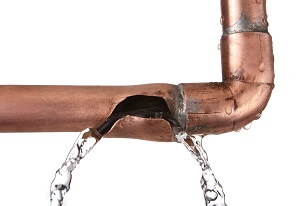As temperatures drop, there are a variety of tasks you need to do to prepare your home. One important but often overlooked task is preventing frozen pipes. When a home’s pipes freeze, they may burst, and burst pipes can cause costly property damage. Take a closer look at how homeowners insurance may address frozen pipe breaks, and consider a few recommendations that may lower your risk of frozen pipes this winter.

Homeowners Coverage for Burst Pipes
Generally speaking, many homeowners insurance policies may cover property damage caused by frozen pipes that burst. However, policies may exclude or restrict this coverage if the policyholder does not take steps to prevent pipes from freezing in the first place. For example, your policy may require you to keep your home heated—which can lessen the risk of pipes freezing—to qualify for this coverage. Coverage conditions may vary, so policyholders should speak to their homeowners insurance agent to learn more about the terms included in their policies.
Preventing Frozen Pipes
Regardless of how your homeowners insurance may cover frozen pipe breaks, you should try to prevent pipes from freezing. A few ways to do so include:
- Insulate pipes. You may be able to insulate pipes using materials such as foam sleeves, heat tape or various types of insulation. In-pipe heating cables may also be available. Ask your hardware store for recommendations on how to insulate different kinds of pipes.
- Fix all leaks before cold temperatures hit. Existing leaks can make pipes more vulnerable to breaks if they freeze.
- Allow faucets to drip during extremely cold weather.
- Remove garden hoses and cover outdoor faucets. If your home has shutoff valves, consider cutting off the water supply to outdoor pipes.
- Keep the interior of your home heated. Do not let interior temperatures fall below 55 degrees. Remember to use care when heating the home, as heaters may increase your risks of fires or carbon monoxide poisoning.
If you find a frozen pipe, turn on the cold water faucet nearest the line. It may be possible to thaw the pipe using a hairdryer. However, never try to thaw frozen pipes using direct flames or blowtorches.
Got Questions?
Before we get too deep into winter, review how your homeowners insurance may cover your property if frozen pipes burst. And if you have questions about your coverage, contact Patriot Insurance Agencies. We’re the agency North Carolina residents trust with their homeowners insurance needs.
